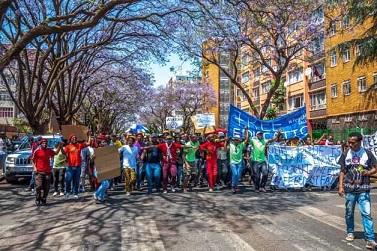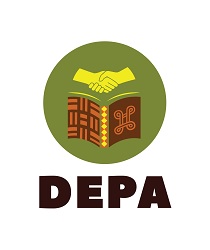
Can art decolonise for peace education? Thoughts from the DEPA-SA Online Conference
The Decolonized Peace Education in South Africa conference happened at a critical and testing time. The conference happened at a time when humanity is dealing with many things that are happening all at once. They are happening because the world is constantly changing, not only because of the natural order but mostly because of the order of modernity. Modernity is not a problem, but a racialised and westernised modernity is the fundamental problem. As a problem, this modernity behind it hides coloniality. Coloniality is the remaining systems of colonisation that are running today’s world, the ones that keep ‘coloniality of knowledge’, ‘coloniality of being’, and ‘coloniality of power’ alive, maintaining the center and periphery, black and white, and North and South global colonial gap. The foundation of modernity-coloniality. This colonial relationship between the center and periphery is made and maintained with violence and war. The struggles against modernity/coloniality are a testament that there is violence. As a result of this constant violence, the world has come to be entangled with the ‘paradigm of war’ (Maldonado-Torres 2008). To live under the paradigm of war means to live by constantly seeking peace. Seeking peace or forming peace has become a way of life that comes after conflict or even before. The modern world is conflict-constructed maintained by violence. As a result, many things are happening all at once to try and deal with the effects of modernity namely: the war over 5G between China and America, resistance against 5G from the civilians, with Black Lives Matter, Rhodes Must Fall, Fees Must Fall, the call for decolonisation and the call to move towards a more inclusive world. The times are critical and testing because modernity was presented to us as a perfect solution, a gift from the west that spread and shaped the world.
The colonial shaping of the world by western ideologies left the cultures of the world with a big task of finding and freeing themselves. The call to resist these negative effects of modernity-coloniality is not new, it has taken many eras, movements, and perspectives. Decolonisation is just one of the options. But decolonisation is an option that encompasses all the other options. The call for decolonisation comes from the need for peace and freedom. Peace and freedom are amongst many things that western modernity arrested and captured. To exist in the modern world is constantly seeking peace and freedom. The DEPA South Africa online conference contributes to this conversation which leads to the direction of creating a curriculum for peace education from a decolonial perspective.
Decolonisation is something that is applied in many different geographics, institutions, and academic disciplines. However, art is at the top of the list of disciplines that allow the expression and creation of something against modernity-coloniality. With art, many things can be made such as painting, photograph, sculpture, performance, theatre production, sound, songs, poems, and videos. The question that always arises is how to apply decolonisation and make it practical, how to take it beyond theory. Art-based methods make decolonisation practical, soothing that can be applied written about, and lived by. This is why this conference is significant, it focuses on the role of art during decolonisation and how art can offer decolonial strategies to combat the violence of modernity in its different forms. Art is a practical and therapeutic discipline, it can be adopted for creative expression and healing. As a world healing from the wounds inflicted by coloniality, art takes a stand as the panacea that offers to heal to the world. In this case, art can help us heal peace by creating creative expressions that will contribute to the making of a curriculum on peace education.
Peace education is important because we live in a violent world that is constructed and fuelled by the same principles of violence. Violence against cultures, knowledge, economy, land, humans, and the poor is something that is normalised in the modern-colonial world. From race-based violence to gender-based violence, from economic violence to epistemic violence, violence is naturalised. A curriculum on peace education based on decolonisation is important because it provides tools to dismantle the remaining structures of violence in our society. Art is very connected to people's cultures and identity which makes a perfect tool to install cultural values and knowledge.
Dr Zingisa Nkosinkulu
Research Investigator, DEPA SA
Post-Doctoral Fellow, Unisa

